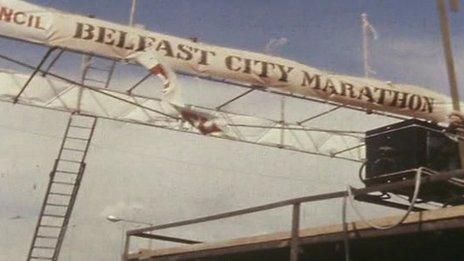Belfast Marathon winner Greg Hannon remembers that first Belfast run in 1982
- Published
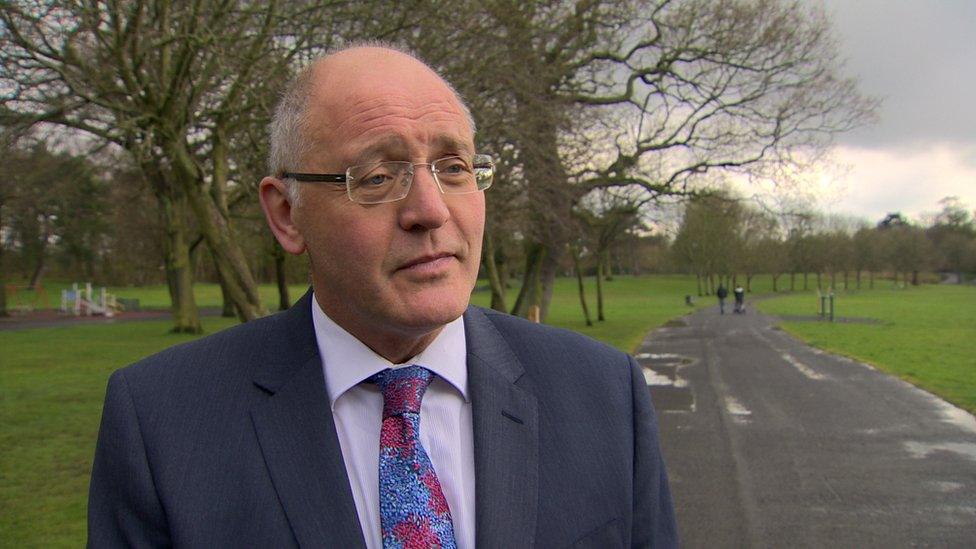
Greg Hannon is proud of the Belfast marathon and how it has been kept going down through the years
The memory of the first Belfast City Marathon will stay forever with winner Greg Hannon.
He came in at two hours, 20 minutes and 25 seconds and he can still recall the joy of the moment.
"All sorts of other memories have gone by the wayside, but I do remember it and it was quite an experience," he said.
"It was great for me. It got me to the Commonwealth Games and it got me very well established in UK athletics."

Greg Hannon hits the finishing line to win the inaugural Belfast city marathon in 1982
Greg is proud of the Belfast marathon - the city was one of the trailblazers, he said, and it is wonderful that it has continued into its 35th year, standing the test of time.
"We were one of the first in the UK alongside London and Dublin and we have managed to keep it going since 1982," he said.
"The first few years of the 1980s were very good, then the numbers went down. But I believe there are up to 2,000 now running the full 26 miles."
Davy Seaton is still running marathons but in a different role.
He took part in that first marathon but now he is race director, playing a pivotal role in the organisation of the day.
Standing outside the old Maysfield Leisure Centre, the starting point for that inaugural run in 1982, he was a little nostalgic for the past.
"That first Belfast marathon - if you ran in it, it sticks in your mind forever. It was a wonderful thing," he said.
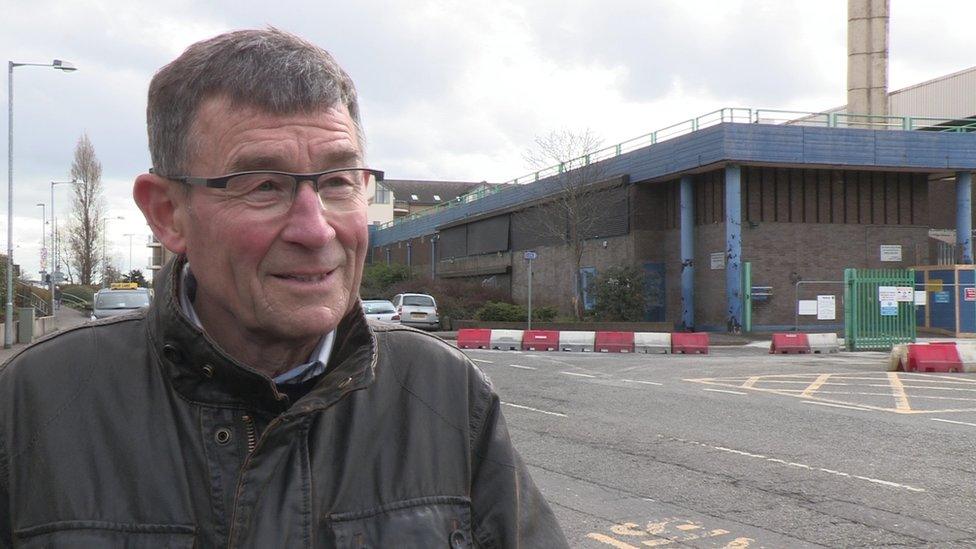
Davy Seaton is still running marathons... but in a different way
"The idea was brought back from the London marathon the previous year.
"Les Jones, who was instrumental in so much in athletics in Northern Ireland, thought it would be a wonderful thing to do.
"We got together with John Lavery from Guinness and the people from Belfast City Council and the sports council and Les pulled the whole thing together."
There were just over 3,000 competitors that first year.
"There was a novelty about it, every half-decent cross-country runner and sportsman wanted to be part of it. We were able to get 3,000 people quite easily," he said.
It was originally a "local race" back then, with competitors coming from Great Britain and the Republic of Ireland.
The marathon was initially a two-lap race, in south and east Belfast. As time went on, the route was changed to encompass the north and west of the city.
"The Troubles were there, but it didn't impact adversely on the marathon.
"In those days, there were people from one side of the community who, because of the marathon, ran the other side of the community.
"We had boys from the Shankill Road quite happily running up the Falls Road and guys from west Belfast running down Sandy Row and the Donegall Road.
"We were all just athletes in those days. There was nothing more sinister than that."

On track - runners in the 1982 Belfast City Marathon
Davy had to deal with some odd requests back then.
"There was one particular fellow who requested the number 1690.
"We were happy to facilitate him, but I asked why: 'I'm a bit of a loyalist,' he told me. 'I want my friends to know that I ran up the Falls Road with the number 1690 on my breast'."
Police and army officers also took part - they went incognito in shorts and running vests.
"Loads of them ran. They all enjoyed it. They were seeing the city from a different perspective."
Davy Seaton can still remember his own first Belfast marathon. He came in 20th, finishing the course in two hours, thirty-eight minutes.
'Bright idea'
"Greg Hannon was about three miles up the road from me and, no doubt, had had a shower by the time I struggled over the finishing line," he said.
He has watched the Belfast City Marathon grow with a certain paternal pride.
"After the initial surge, it dropped slightly in terms of numbers.
"Then somebody had the bright idea of introducing the team relay - a five-person event and people who couldn't manage the whole 26 miles, could easily run five, six or seven miles.
"So we were able to attract quite a few people from other sports."
Others can take part in the wheelchair race, the fun run or the marathon walk.
"No matter how old or how unfit you are we have something on May Day Monday to suit you," he said.
"There is also the amount of charity money that we raise.
"The Ulster man and woman is very generous, There have been millions of pounds raised by people running in this event and that is really wonderful."
And the Belfast event has a special place in people's hearts, he said.
"We have 35 years unbroken, while other places lasted for two or three years.
"We have stood the test of time through the Troubles. We may never compete with New York, London or Paris but, in our own wee way, there is something quite unique about the Belfast marathon."
You can watch a full report on this story by Mervyn Jess on BBC Newsline, Friday 29 April from 18:30 BST.
BBC News NI will be covering the marathon, including latest news, pictures and video, on our live page from 08:00 BST on Monday morning.
- Published4 May 2015
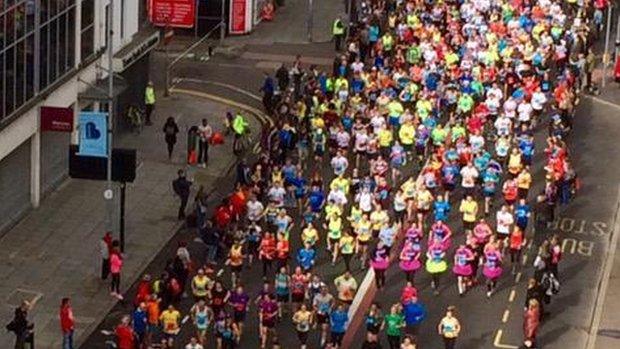
- Attribution
- Published4 May 2015
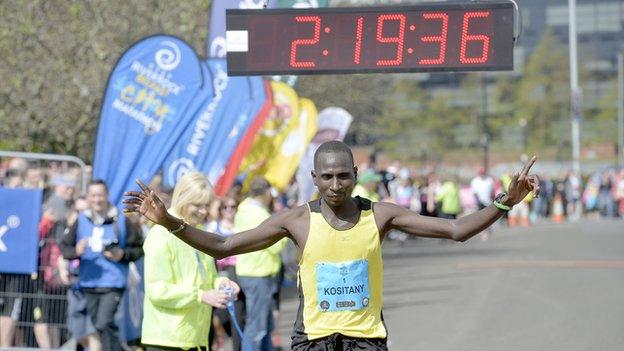
- Attribution
- Published2 May 2012
